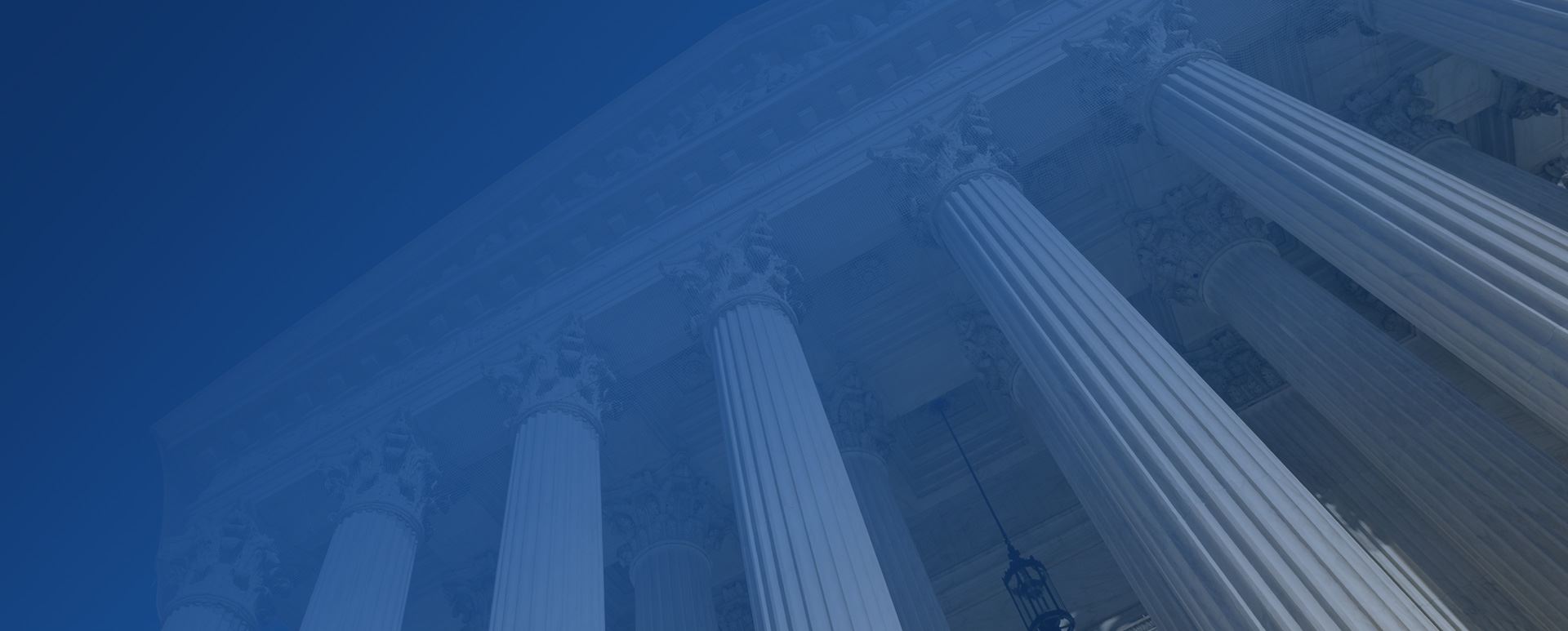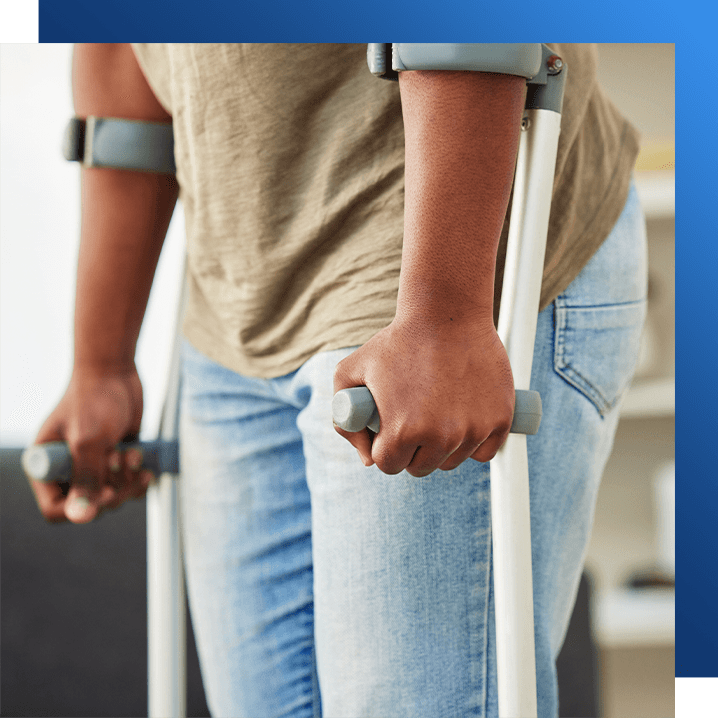
Fairfax Slip & Fall Accident Lawyers
Slip-and-fall accidents occur all too often to individuals across the country, frequently due to safety hazards on the premises they visit. While a slip-and-fall may not sound serious, it can cause severe physical damage to victims in many instances. This is especially true for seniors with fragile health and bone structures.
These incidents can occur anywhere, such as at grocery stores, malls, office buildings, and parking lots. Their causes can vary, but in the context of personal injury, they are caused by the negligence of the premises owner, manager, or resident. Thus, they fall under the legal category of “premises liability.”
If you or a loved one has sustained injuries due to a slip-and-fall incident, which you believe was due to the failure of the property owner to provide a safe environment, you may have grounds for an injury claim. At Law Office Of Andrew S. Kasmer, we can review the circumstances of your injuries to determine their validity for pursuing legal action under the Virginia premises liability laws.
Request a free case assessment with a Fairfax slip-and-fall attorney by calling (571) 350-8562 or visit our online contact form. Hablamos español.
What Is Premises Liability?
Premises liability is a legal concept that holds property owners (or those who control the property) responsible for the safety of visitors. These individuals or entities must take reasonable steps to maintain a safe environment and warn visitors of potential hazards. A slip-and-fall accident due to the property owner's negligence may be subject to premises liability.
Examples of hazardous conditions that could lead to slip-and-fall injuries include:
- Wet floors: These are often caused by cleaning, spills, or weather conditions such as rain or snow tracked indoors.
- Uneven surfaces: Including broken or loose floor tiles, damaged sidewalks, and potholes in parking lots.
- Poorly lit areas: Insufficient lighting can make it difficult to see potential hazards, increasing the risk of slips, trips, and falls.
- Obstructions in walkways: Items left on the floor, such as cords, rugs, or debris, can quickly become trip hazards.
- Icy or snowy conditions: These are particularly problematic in colder climates, where the accumulation of ice and snow on walkways and parking lots is not managed correctly.
- Defective stairs and ramps: Lack of handrails, poor construction, or improper maintenance can make these areas particularly dangerous.
- Transitions from one type of surface to another: Abrupt changes in flooring, such as from carpet to tile or a higher to lower elevation, can cause slips if not adequately signposted.

Why We're Your Trusted Choice
-
More Than $10 Million WonOur law firm is known for winning, and winning big.
-
Offering 100% Free ConsultsGet started on your case with a free consultation. Contact us today!
-
We Prepare All Cases for TrialFrom beginning to end, we always help our clients prepare to win.
-
You Don't Pay Unless We WinIt costs you nothing unless our firm wins your case.

What Type of Premises Can Be Liable in Slip & Fall Claims?
Premises liability law applies to any type of property, whether residential or public. This includes commercial properties such as stores, malls, restaurants, bars, hotels, motels, gas stations, gyms, movie theaters, and amusement parks.
Other public places, such as sidewalks, walkways, parks, playgrounds, government buildings, and bus and train stations, can also be involved. Residential properties can include private homes and apartment buildings. Workplaces can consist of office buildings, factories, warehouses, and other industrial sites.
Schools, universities, hospitals, and medical facilities can also be where slip-and-fall accidents occur.
Slip & Fall Injuries
Slip-and-fall accidents can lead to injuries ranging from minor bumps and bruises to life-altering catastrophic injuries. The most common type of injury involves soft tissue, such as sprains, strains, and tears in muscles, ligaments, and tendons. These can cause pain, swelling, and limited mobility, especially in ankles, wrists, backs, and knees.
The back and neck are vulnerable to falls, leading to herniated discs, whiplash, or muscle strains. The impact of a fall can fracture bones, especially in older adults or those with weaker bones. Common fractures include hips, wrists, arms, ankles, and the tailbone. These falls can also cause head injuries ranging from mild concussions to more severe injuries like skull fractures or traumatic brain injuries (TBI).
In severe cases, a slip and fall can damage the spinal cord, potentially leading to partial or complete paralysis. This is a life-altering injury requiring extensive medical care and rehabilitation.



Hear From Our Happy Clients
At Law Office Of Andrew S. Kasmer, your satisfaction is our priority! See for yourself what our clients have to say about working with us.
-
"Satisfaction Guaranteed"Mr. Andrew Kasmer is the best lawyer of all time. I will refer anyone involved in a car accident, or at work to contact the Law Offices of Andrew Kasmer.- Milan F.
-
"Lawyers That Truly Care"I highly recommend this law firm. Mr. Holston helped navigate my worker's comp case to a more than satisfactory settlement that would not have been reached on my own.- Melanie C.
-
"Work Hard to Get What You Deserve"A wonderful group of attorneys. They worked very hard in my case and set proper expectations to start. I was advised along the way and while my meetings were short and direct to the point, I didn't feel like any of my questions didn't go unanswered.- Frank S.
-
"Worth Every Penny"I hired Mr. Kasmer two years ago for a DUI-related incident. He went above and beyond to make sure that I was well-informed and involved in what was going on. I have never had a better experience with a lawyer. I was very confident in his ability.- Jessica T.
-
"This Lawyer Is a Winner"Andrew Kasmer is the best lawyer! I do not say that lightly. Mr. Kasmer worked so diligently on my workers' compensation case. He never gave up, counseling me and guiding me through.- Nicole M.
-
"Fights for His Clients"
Andrew Kasmer's team is professional, thorough, and your best advocate. I was in a car accident where my car was. Mr. Kasmer was able to get me at least 4 times what I would have gotten if I had dealt with the insurance companies myself.
- Kim R.
Proving a Slip & Fall Injury Claim
To win a slip-and-fall claim, you must prove four critical elements, each of which can present challenges.
You must show the property owner owed you a legal duty to keep you safe; this duty generally applies to customers and invitees. Next, you must establish that the owner failed to uphold that duty. That could mean they did not maintain the property safely, failed to warn visitors about potential hazards, or created a dangerous condition, such as mopping a floor without putting up cones.
It's essential to prove that the property owner's breach of duty caused your fall and injuries. This can be difficult if other factors might have contributed or if there's no clear evidence of the cause of the fall.
Finally, you must demonstrate you suffered actual damages due to the accident. This includes medical bills, lost wages, pain and suffering, and any property damage caused by the fall.
Proving these elements can be complex, such as establishing the condition existed and that the owner knew or should have known about it. Premises owners and their insurers may argue that you were partially to blame, that the condition was open and obvious, or that the cause of your injury is unclear. The burden of proof lies with you as the injured party to demonstrate the property owner’s negligence.
Call Law Office Of Andrew S. Kasmer for Proven Legal Help
Legal issues can be stressful and complex. While you may be tempted to handle them, our legal services can provide invaluable support. Our Fairfax slip-and-fall attorneys can guide you through the legal process, protect your rights, and fight for the best possible outcome in your situation.
Our professional knowledge, skills, and experience can save you time, money, and stress when seeking compensation for your damages against well-funded insurers whose goal is to pay out as little as possible.
Call (571) 350-8562 or contact us online for legal guidance today.